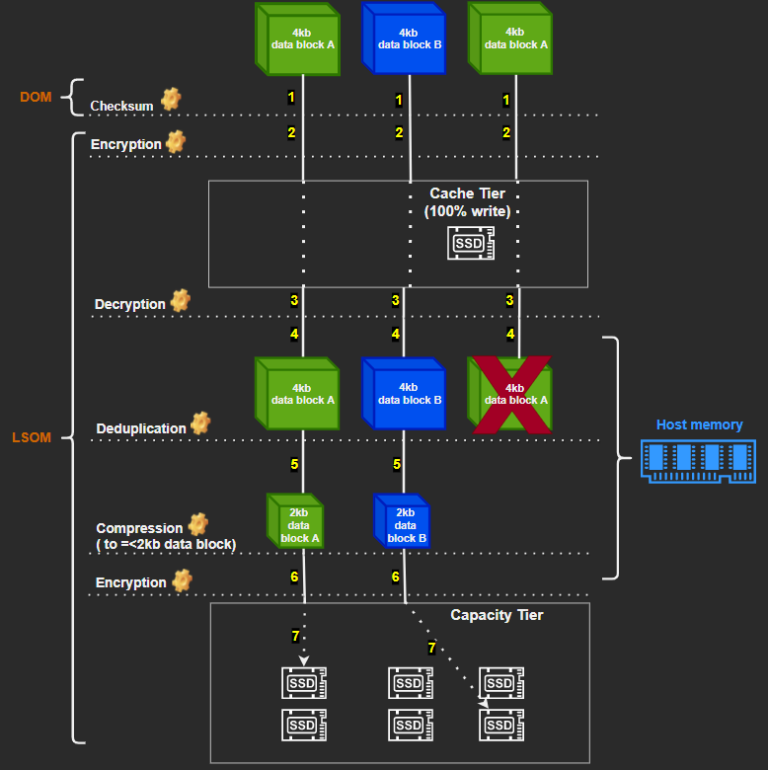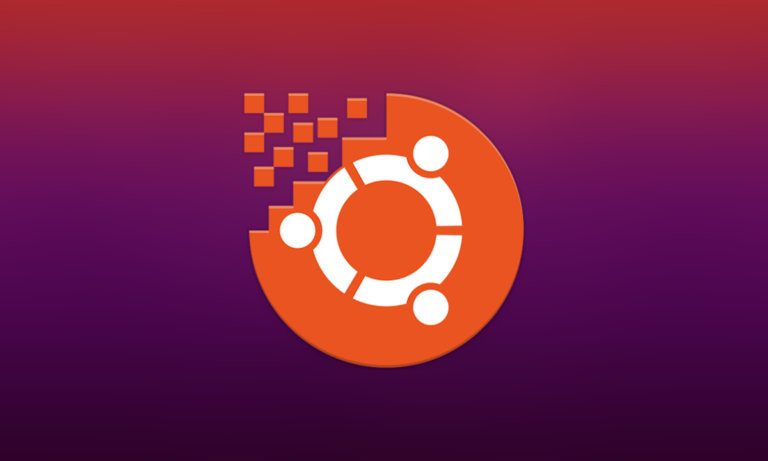Curious about DevOps and its core principles? Wondering why DevOps is becoming increasingly important in the world of software development?
In this article, we will explore the key concepts of DevOps, its significance, best practices for implementation, common challenges faced, and tips on overcoming them.
From collaboration and automation to monitoring and feedback, learn how to foster a successful DevOps culture in your organization.
Key Takeaways:
- Collaboration and communication are key principles of DevOps.
- Automation and continuous integration/delivery are crucial for successful DevOps implementation.
- Overcoming challenges in DevOps adoption requires education, culture change, and use of proper tools and infrastructure.
What is DevOps?
DevOps is a software development methodology that integrates development and operations teams to improve the software development process.
At its core, DevOps is built on the principles of collaboration, automation, and continuous delivery. By fostering close collaboration between developers and IT operations, DevOps aims to streamline the entire software development lifecycle, from planning and coding to testing and deployment.
One of the key principles of DevOps is the automation of repetitive tasks, such as building, testing, and deployment, which not only saves time and reduces errors but also enables teams to deliver software more rapidly and reliably.
The importance of DevOps cannot be overstated in today’s fast-paced digital landscape where agility and efficiency are paramount. By breaking down silos between development and operations teams, DevOps enhances communication, accelerates delivery, and improves overall software quality.
What are the Core Principles of DevOps?
The core principles of DevOps revolve around continuous integration, automation, and collaborative teamwork to streamline software development processes.
Continuous integration is crucial in DevOps as it involves frequent code integration and automated testing to catch bugs early on. This continuous feedback loop ensures that any issues are identified and resolved quickly, leading to higher software quality.
Automation plays a key role in DevOps by automating repetitive tasks, such as testing, deployment, and infrastructure provisioning. This not only saves time but also reduces errors and enhances overall efficiency in the development pipeline.
Effective collaboration between development and operations teams is another fundamental principle of DevOps. By breaking down silos and fostering open communication, teams can work together seamlessly towards common goals, leading to faster delivery and improved software performance.
Why is DevOps Important?
DevOps is crucial for organizations seeking efficiency, high-quality software delivery, and agile project management practices.
By embracing DevOps principles, companies can seamlessly integrate development and operations, fostering collaboration and breaking down silos. This alignment leads to faster deployment cycles, improved communication, and greater predictability in software releases. Additionally, DevOps automates repetitive tasks, enhancing productivity and reducing human error. Continuous monitoring and feedback loops ensure timely identification of issues, promoting rapid iteration and continuous improvement. The emphasis on automation, testing, and DevOps tools results in more reliable, stable software products that meet user expectations and business requirements. The adoption of DevOps practices enables organizations to adapt quickly to market demands and drive innovation in an increasingly competitive landscape.”
Best Practices for Implementing DevOps
Implementing DevOps successfully requires following best practices that focus on features delivery, security, and customer satisfaction.
One crucial aspect in DevOps implementation is the integration of automation tools to streamline development processes and ensure consistent delivery of features. By leveraging tools like Jenkins, Ansible, or Docker, teams can automate testing, deployment, and monitoring procedures, reducing manual errors and speeding up release cycles.
Focusing on security measures such as code scanning, access controls, and encryption protocols is essential to protect sensitive data and maintain the integrity of the software.
Prioritizing customer-centric approaches involves gathering feedback, analyzing user behavior, and iterating on product features to meet evolving needs.
Collaboration and Communication
Effective collaboration and communication are foundational pillars of DevOps culture, fostering innovation, testing, and continuous improvement.
When teams within a DevOps environment work seamlessly together, innovative ideas flow more freely, problem-solving becomes more dynamic, and productivity skyrockets. Through open lines of communication and a shared mindset of transparency, DevOps teams can tackle challenges more efficiently, support each other through roadblocks, and consistently deliver high-quality, impactful solutions.
This collaborative approach extends to the testing phase, where rapid feedback loops and comprehensive testing protocols ensure that software is thoroughly vetted for any issues or bugs. By embracing a culture of testing, DevOps teams minimize risks, enhance quality, and maintain a strong focus on customer satisfaction.
Continuous Integration and Delivery
Continuous Integration and Delivery in DevOps ensure automation, speed, and efficiency in the software development workflow.
By seamlessly integrating code changes from multiple team members, CI/CD processes help in early bug detection and efficient resolution before merging into the main codebase. This approach enables teams to identify and fix issues quickly, reducing the risk of integration conflicts. Moreover, automation plays a vital role in executing repetitive tasks, such as building, testing, and deployment, freeing up developers to focus on core development tasks.
Automation
Automation plays a vital role in DevOps by streamlining testing processes, enabling continuous improvement and efficient CI workflows.
By automating routine tasks such as testing, deployment, and monitoring, teams can focus on enhancing product quality and innovation.
Automation also allows for quicker identification and resolution of bugs and issues, leading to shorter feedback loops and faster time-to-market.
Implementing automation in DevOps results in more reliable and consistent software delivery, reducing human error and increasing overall productivity.
Monitoring and Feedback
Continuous monitoring and feedback mechanisms in DevOps are essential for evaluating metrics, enhancing operational efficiency, and driving quality improvements.
The continuous monitoring component of DevOps ensures that systems and processes are constantly observed, providing a real-time assessment of performance metrics. This real-time data allows teams to react promptly to any anomalies that may arise, minimizing potential downtime or performance issues. By incorporating feedback mechanisms, teams can gather insights from stakeholders and end-users, enabling them to make informed decisions and prioritize tasks effectively. This iterative feedback loop fosters a culture of continuous improvement within the organization, leading to enhanced operational efficiency and streamlined workflows.
Security and Compliance
Ensuring security and compliance standards in DevOps requires dedicated efforts to safeguard features and meet regulatory requirements.
One critical aspect of security and compliance in the realm of DevOps is the protection of features throughout the software development life cycle. This involves implementing secure coding practices, conducting regular security assessments, and staying vigilant against potential vulnerabilities. Complying with regulatory standards such as GDPR, HIPAA, or PCI DSS is essential to ensure the confidentiality, integrity, and availability of data and systems. By integrating security measures early in the development process, organizations can reduce the risk of security breaches, mitigate potential legal issues, and build trust with customers and stakeholders.
Common Challenges in Implementing DevOps
Implementing DevOps can face common challenges such as resistance to change, insufficient tools, and skills gaps within teams.
Resistance to change is a significant hurdle in the successful adoption of DevOps practices. Employees may be comfortable with existing processes and reluctant to embrace new methodologies, leading to friction and delays in implementation.
Tool deficiencies can also impede progress, with organizations struggling to find suitable platforms that cater to their specific requirements. This can result in suboptimal automation, monitoring, and deployment capabilities, hindering overall efficiency.
To overcome these barriers, enhancing team skills is crucial. Upskilling team members in areas such as automation, cloud technologies, and collaboration tools can enable them to navigate the complexities of DevOps with confidence.
Resistance to Change
Resistance to change in DevOps often stems from existing organizational processes and cultural barriers that hinder agile transformations.
Organizational processes, deeply rooted in traditional ways of working, can create resistance due to fear of the unknown and disruption to familiar routines. This resistance is further compounded by cultural challenges such as lack of trust, communication gaps, and resistance to enablement.
Change management strategies play a crucial role in addressing these resistance factors by involving stakeholders early on, fostering open communication, providing adequate training, and demonstrating the benefits of the proposed changes.
Lack of Proper Tools and Infrastructure
The lack of appropriate tools and infrastructure can impede DevOps progress, affecting automation capabilities and integration efficiencies.
When businesses fail to invest in the necessary technologies for DevOps implementation, the road to streamlined operations and efficient collaboration becomes arduous. Technological resources play a pivotal role in enabling seamless automation of tasks and smooth integration across different stages of development. Without the suitable tools in place, teams may struggle to achieve continuous delivery, effective monitoring, and swift feedback loops essential for a successful DevOps culture.
Siloed Teams and Communication Issues
Siloed teams and communication gaps hinder effective collaboration in DevOps, disrupting workflow integration and coordination efforts.
Teams operating in silos often find it challenging to share information seamlessly across departments. This lack of communication leads to duplication of work, conflicting priorities, and overall inefficient processes. When essential data gets stuck in isolated pockets, team members struggle to stay aligned, resulting in delays and suboptimal outcomes.
By breaking down silos and fostering open channels of communication, organizations can streamline workflows, enhance knowledge sharing, and boost overall productivity. Establishing a culture of transparency and collaboration is key to overcoming these obstacles and driving successful DevOps implementations.
Inadequate Training and Skills
Inadequate training and skills development can hinder DevOps implementations, necessitating continuous improvement efforts and team skill enhancements.
Without proper training, team members may struggle to integrate new tools and technologies effectively, leading to inefficiencies and delays in project delivery.
Continuous learning programs help employees stay updated with the latest industry trends and best practices, ensuring that they can adapt quickly to changing requirements and technologies.
By investing in skill development initiatives such as workshops, certifications, and mentoring, organizations can enable their teams to acquire the necessary skills and expertise for successful DevOps implementations.
How to Overcome these Challenges?
Overcoming challenges in DevOps requires educating employees, fostering a DevOps culture, and investing in appropriate tools and infrastructure.
Employee education is crucial for successful DevOps implementation. Providing training sessions on key DevOps principles like continuous integration, continuous delivery, and automation can help team members grasp the concept and its benefits.
Encouraging a supportive DevOps culture involves promoting collaboration, teamwork, and transparency within the organization. Creating clear communication channels and recognizing achievements can boost morale and foster a sense of common goal.
Investing in state-of-the-art tools and infrastructure ensures that the team has the necessary resources to streamline processes and enhance productivity. Promoting team collaboration through cross-functional teams and shared responsibilities can breakdown silos and drive innovation in the organization.
Embracing these strategies collectively can help organizations navigate the challenges in DevOps implementation.
Educate and Train Employees
Educating and training employees in DevOps principles is essential for instilling a culture of continuous improvement and collaboration.
By providing employees with the necessary knowledge and skills in DevOps practices, organizations can enhance their efficiency, productivity, and overall performance. This education and training not only equips employees with the tools to streamline development processes but also fosters a mindset of adaptability and innovation. Through continuous learning initiatives and hands-on experiences, employees can actively contribute to achieving organizational goals, promoting a cohesive and agile work environment. Investing in employee education and training programs demonstrates a commitment to long-term success and enables individuals to drive positive change within the organization.
Implement a DevOps Culture
Cultivating a DevOps culture promotes collaboration, effective communication, and operational efficiency within teams.
One key aspect of establishing a DevOps culture is fostering a sense of shared responsibility among team members, breaking down traditional silos and creating a more cohesive working environment. This shift towards a collaborative mindset encourages cross-functional teams to work together towards common goals, leading to enhanced productivity and innovation.
By emphasizing open and transparent communication channels, team members are encouraged to share knowledge, address challenges collectively, and provide timely feedback. This active exchange of information not only improves decision-making processes but also helps in identifying and resolving issues quickly, thereby contributing to a more resilient and efficient operational framework.
Use the Right Tools and Infrastructure
Utilizing the correct tools and infrastructure is crucial in DevOps for enhancing automation capabilities, operational efficiency, and integration processes.
By selecting the right tools, teams can streamline repetitive tasks, reduce manual errors, and accelerate the delivery of software. Additionally, proper infrastructure supports scalability, resilience, and agility, essential for modern applications. Integration of tools such as Jenkins, Ansible, and Docker enables continuous integration and deployment, fostering collaboration among development, operations, and quality assurance teams.
Foster Collaboration and Communication
Fostering collaboration and enhancing communication channels are vital for promoting effective teamwork and agile practices in DevOps environments.
In a DevOps setting, it is essential that team members work together seamlessly to achieve common goals. By encouraging collaboration and open communication, teams can leverage their individual strengths and expertise to innovate and deliver projects more efficiently. Agile methodologies play a crucial role in this process, allowing teams to adapt to changes quickly and deliver high-quality products to customers. Effective communication strategies, such as regular stand-up meetings, feedback sessions, and using tools like Slack or Jira, promote transparency and streamline project workflows.
Continuously Monitor and Improve Processes
Continuously monitoring and improving processes in DevOps is essential for enhancing efficiency, quality, and feedback mechanisms within software development workflows.
By analyzing and optimizing the various stages of the development lifecycle, organizations can identify bottlenecks, streamline workflows, and deliver high-quality products faster.
Implementing automation tools and techniques not only accelerates deployment but also reduces the chances of errors and inconsistencies that can arise from manual interventions.
Ensuring that performance metrics are tracked and monitored in real-time helps in proactively addressing any potential issues before they escalate, leading to smoother operations and improved overall product quality.
Frequently Asked Questions
What are some key principles of DevOps best practices?
Some key principles of DevOps best practices include automation, collaboration, continuous integration and delivery, monitoring, and culture.
How can DevOps best practices improve organizational efficiency?
By implementing DevOps best practices, organizations can improve efficiency through faster software delivery, increased collaboration and communication, and streamlined processes.
Why is collaboration an important aspect of DevOps best practices?
Collaboration is crucial in DevOps best practices because it helps break down silos between teams and promotes a culture of shared responsibility and ownership in the software development process.
What is the role of automation in DevOps best practices?
Automation is a key component of DevOps best practices as it helps streamline processes, reduce human error, and increase efficiency and consistency in software development and delivery.
What are some tools commonly used in DevOps best practices?
Some commonly used tools in DevOps best practices include version control systems, continuous integration and delivery tools, configuration management tools, and monitoring and alerting systems.
How can organizations foster a DevOps culture to support best practices?
Organizations can foster a DevOps culture by promoting collaboration and communication, encouraging cross-functional teamwork, and implementing a mindset of continuous improvement and learning.





